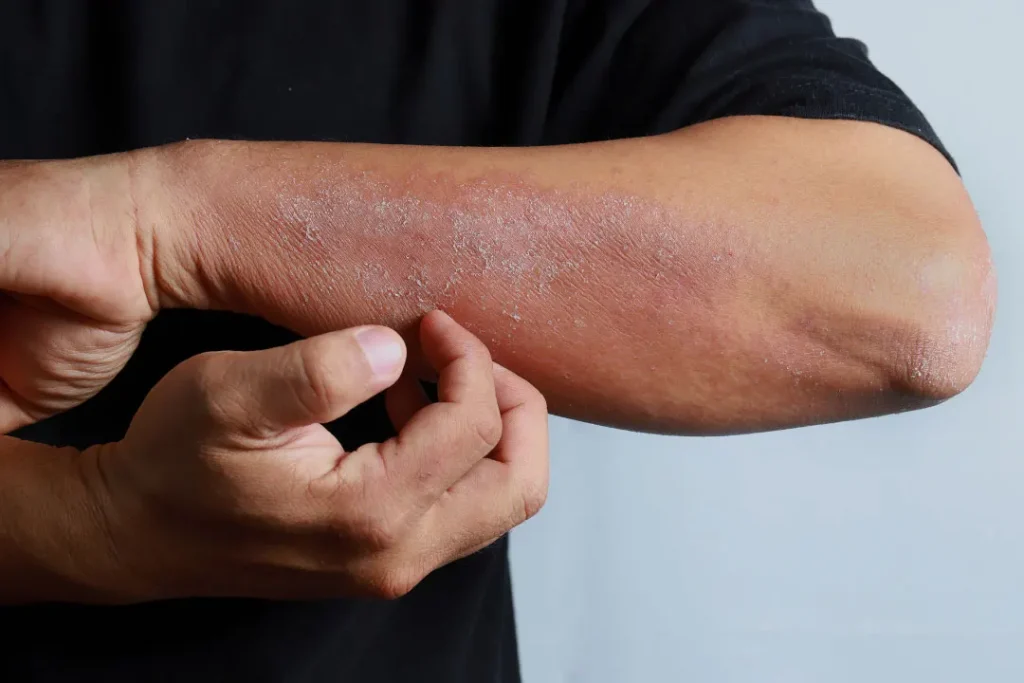Due to its conceivable health advantages, catechu, a nutritional supplement made from the extract of acacia catechu, has grown in popularity in recent years. This article will provide you with a thorough review of catechu, including its nature, health advantages, recommended dose, side effects, possible drug interactions, and safe usage. We will examine the chemistry of catechu and its physiological effects on the body and brain in great scientific depth.
You May Also Like:
Cognitex Elite vs. GAMMA BrainLuxury
Finding the Best Tryptophan Supplement: 5 Top Brands Reviewed
Catechu: Benefits, Dosage, Side Effects, Drug Interactions, and Other Important Information is an original (NootropicsPlanet) article.
Nature of Catechu
Catechu is a brownish extract made from the heartwood of the acacia catechu tree, and is indigenous to Southeast Asia and India. It is also knonwn as cutch or black catechu. Catechins, a kind of polyphenol, are the primary bio active elements of catechu. The substances known as flavonoids, which are well known for their antioxidant qualities, includes catechins.
Health Benefits of Catechu
- Anti-Inflammatroy Health: Catechu has anti-inflammatory and antioxidant properties that are strong, that scavenge dangerous free radicals from the body and lower oxidative stress. It can also help treat illnesses brought on by inflammation.
- Cardiovascular Health: Research has shown that catechu can benefit cardiovascular health. By lowering total cholesterol and triglyceride levels, it can help lower blood pressure and improve lipid profiles.
- Support for digestive health: Catechu has a long history of usage for digestive health. Due to its astringent and antibacterial properties, it can help in the treatment of diarrhea, dysentery, and other gastrointestinal problems.
- Oral Health: Catechu is advantageous for oral health due to its antibacterial properties. It can help fend off oral bacteria and guard against foul breath, gum disease, and tooth decay.
- Anticancer Possibilities: According to research, catechu may have anticancer capabilities. It is a prospective option for future study in cancer research due to its anti-inflammatory and antioxidant properties, its ability to suppress the proliferation of tumor cells, and ability to cause apoptosis.

Chemistry of Catechu
Catechu is made up mostly of catechins, which are a group of bio-active substances. Catechins are a kind of flavonol called a flavan-3-ol. Epicatechin, epicatechin gallate, epigallocatechin, and epigallocatechin gallate (EGCG) are the four main catechins present in catechu. The hydroxyl groups on the B-ring of these catechins’ chemical structures are what give them their distinctive properties.
Catechins’ multi-hydroxyl composition adds to their antioxidant properties. In the body, antioxidants scavenge free radicals to shield cells from oxidative damage. Catechins also have anti-inflammatory qualities, which can enhance their health advantages.
Physiological Properties of Catechu
- Antioxidant Function: Catechins, such as EGCG, have strong antioxidant functions. They can neutralize free radicals, which are highly reactive chemicals that can harm cells through oxidative stress, which play a role in numerous types of disorders. Catechins contribute to cellular health maintenance and general wellbeing by lowering oxidative stress.
- Anti-inflammatory Results: The body uses inflammation as a natural immunological defense to combat infections and mend wounds. Chronic inflammation, however, has been linked to various disorders. Inhibiting pro-inflammatory enzymes and modulating inflammatory pathways are two ways that catechins have been shown to reduce inflammation and perhaps mitigate related medical disorders.
- Cardiovascular Impacts: Catechins can have favorable impacts on heart health. They have been discovered to improve endothelial function, or the blood vessels’ ability to adequately relax and dilate. A healthier blood flow, reduced blood pressure, and a decreased risk of cardiovascular disorders including heart disease and stroke might all be benefits of improved endothelium function.
- Metabolism Impacts: Catechins have been researched for their possible effects on metabolism and weight control, notably EGCG. According to research, catechins can boost fat oxidation, improve energy expenditure, and can even help you lose weight. Their ability to increase thermogenesis (the creation of heat) and encourage the breakdown of fat cells may be the cause of these outcomes.
- Neuroprotective Benefits: New data points to the possibility that catechins, particularly EGCG, can have neuroprotective benefits. They can interact with several molecular targets in the brain by crossing the blood-brain barrier. Catechins have been shown to improve cognitive performance, alter signaling pathways involved in neuronal development and survival, and can lower the risk of neurodegenerative illnesses like Alzheimer’s and Parkinson’s diseases.
It is important to remember that research is currently ongoing to determine the precise processes by which catechins work and how they affect the body and brain. While the physiological impacts mentioned above have been noted in several studies, further research is necessary to completely understand the intricate processes at play.

Optimal Dosage of Catechu
Additional research is still required to determine the ideal catechu dose. It is often offered as a dietary supplement in the form of capsules, powders, or extracts. As your individual needs may differ from other people’s needs, it is crucial to adhere to the manufacturer’s instructions or seek the advice of your healthcare provider for dose recommendations. In general, it is best to start with a small dose and then gradually increase it while keeping an eye on your body’s reactions.
Side Effects of Catechu
While moderate use of catechu is usually regarded as safe for most people, excessive ingestion can result in certain side effects.
These consist of the following:
1. Gastrointestinal Disturbances: Catechu can sometimes induce nausea, constipation, or stomach distress when taken in excessive amounts. It is crucial to follow the dose recommendations and stop using it if these side effects appear.
2. Allergic Responses: Using Catechu can cause allergic responses in those who are known to be sensitive to plants in the fabaceae family, particularly species of acacia. It is essential to use care and get medical help if any negatove reaction symptoms appear.

Potential Substance Interactions with Catechu
There isn’t much information about possible drug interactions with catechu. However, catechu’s astringent properties might prevent certain drugs from being absorbed. Before using catechu, it is best to speak with your doctor if you are on any prescription drugs or have any underlying medical issues.
Responsible Use of Catechu
If you want to use catechu responsibly, think about the following suggestions:
- Quality and Purity: To assure quality and purity, use catechu supplements from reliable producers. To be sure the product complies with safety regulations, look for third-party testing and certifications.
- Medical Consultation: Before beginning catechu supplementation, speak with your medical expert, especially if you have any underlying health issues, are pregnant or nursing, or are on any drugs.
- Compliance with Dosage Recommendations: Comply with the manufacturers or your healthcare provider’s suggested dosage guidelines. Unless directed otherwise by your healthcare provider, never take more medication than is indicated.
- Side Effects and Monitoring: Keep an eye out for any possible side effects and stop using the medication if they appear. Seek medical treatment if any side effects are severe or persistent.

Catechu:
Conclusion
If you are looking for a supplement that can aid in digestive relief, catechu may be right for you. Catechu is known for being highly beneficial in treating diarrhea, swelling of the nose and throat, dysentery, swelling of the colon (colitis), bleeding, indigestion, osteoarthritis, and even cancer. Catechu is also useful in treating skin diseases, hemmeroids, traumtic injuries to stop excessive bleeding, and for dressing any severe wounds. Although there is still ongoing research for this amazing natural herb, it has many promising abilities. Talk to your doctor about trying catechu first before using it.
References:
- “Catechin: Sources, Extraction Methods, Stability, and Biological Activities.” Retrieved from: https://www.mdpi.com/1422-0067/21/12/4448
- “Cardiovascular benefits of catechins.” Retrieved from: https://www.ncbi.nlm.nih.gov/pmc/articles/PMC2835915/
- “Anti-inflammatory effects of catechins.” Retrieved from: https://www.ncbi.nlm.nih.gov/pmc/articles/PMC2835915/
Important Note: The information contained in this article is for general informational purposes only, and should not be construed as health or medical advice, nor is it intended to diagnose, prevent, treat, or cure any disease or health condition. Before embarking on any diet, fitness regimen, or program of nutritional supplementation, it is advisable to consult your healthcare professional in order to determine its safety and probable efficacy in terms of your individual state of health.
Regarding Nutritional Supplements Or Other Non-Prescription Health Products: If any nutritional supplements or other non-prescription health products are mentioned in the foregoing article, any claims or statements made about them have not been evaluated by the U.S. Food and Drug Administration, and such nutritional supplements or other health products are not intended to diagnose, treat, cure, or prevent any disease.


